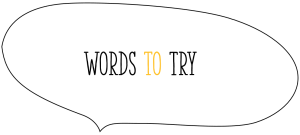10 Policy as Institutional Decision-making
Rebecca Yoshizawa
 We can picture society as being made up of three kinds of social structures: social groups, statuses and roles, and social institutions. Values will guide and influence behaviour within these social structures, but when values guide and influence behavior within institutions, we can call these policies. Policy refers to the operationalization of values into practice within institutions, usually in the form of written documents. We can interrogate any policy to uncover its stated or hidden values and ideological underpinnings, and question whether it maintains or challenges existing social inequalities. We can ask whose values are prioritized by policies, and whose values are not. We can also evaluate the effects of policies on different kinds of oppression, such as sexism, racism, classism, ableism, and ageism, each of which take many forms.
We can picture society as being made up of three kinds of social structures: social groups, statuses and roles, and social institutions. Values will guide and influence behaviour within these social structures, but when values guide and influence behavior within institutions, we can call these policies. Policy refers to the operationalization of values into practice within institutions, usually in the form of written documents. We can interrogate any policy to uncover its stated or hidden values and ideological underpinnings, and question whether it maintains or challenges existing social inequalities. We can ask whose values are prioritized by policies, and whose values are not. We can also evaluate the effects of policies on different kinds of oppression, such as sexism, racism, classism, ableism, and ageism, each of which take many forms.
For example, in British Columbia, it used to be legal for employers to require women to wear high-heeled shoes as part of a dress code. 2017 amendments to the Workers Compensation Act banned mandatory high-heels,[1] representing shifts in the valuation of women’s bodies and labours, and in perceptions of workplace safety. Having a dress code that is different for men and women represents a form of institutional sexism, as is having a code that disproportionately poses physical safety risks to women or to men. This shows how shifting values can influence changes in policies.

Operationalization: the process of taking an abstract idea, like a value, and translating it into a practice, behaviour, or procedure
Policy: institutional decision-making
- See https://news.gov.bc.ca/releases/2017PREM0047-001151 ↵
the process of taking an abstract idea, like a value, and translating it into a practice, behaviour, or procedure
institutional decision-making

